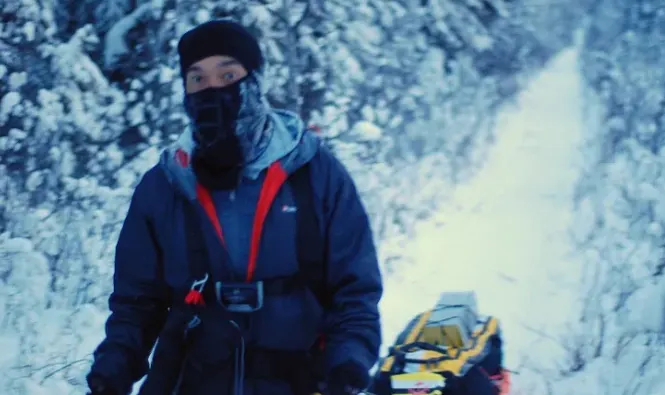
Hallucinations are common in the Yukon's 700km Ultra race
The Yukon Arctic Ultra has reached the stage where competitors are seeing things that aren't there.
"Last night was terrible. So many hallucinations," said Christof Teuscher on Feb. 8 as he set out from Pelly Crossing toward Dawson City. "Multiple times I saw a tent which I expected was the next station. But of course there was nothing there. And all these monsters in the snow and the trees. It's fascinating what the mind can do," he said.
Some competitors have walked 430 kilometres from Whitehorse to Pelly Crossing over six days. This pace requires moving at night and the exhaustion sends the mind to strange places.
"Last night was dark, literally and figuratively. I think if you would have asked me my name I would not have remembered it," Teuscher said, nevertheless with a smile.
The Yukon Arctic Ultra is an annual competition that lets people test themselves. Competitors can choose their distance, from running a marathon all the way to a nearly 700 kilometre trek from Whitehorse to Dawson City.
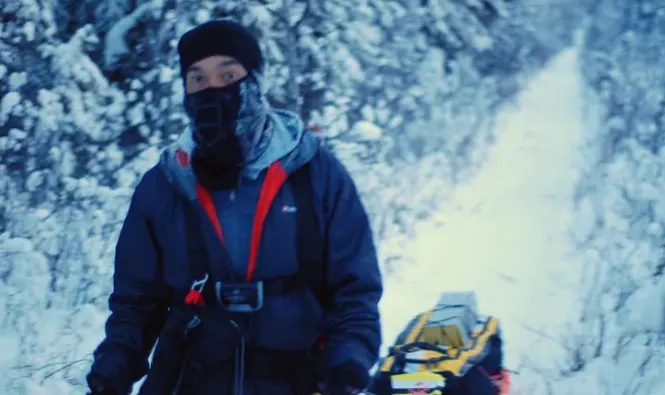
A wide-eyed Ahmad Fathi Junaidi presses forward on minimal sleep. 'It's taking a toll, especially at the end now. You'll be seeing all these snow creatures around. You see different things,' he says. Credit: Philippe Morin/CBC*
They can go by foot, snow bike or skiis. They follow the same path as the dog mushers of the Yukon Quest.
'REALLY BEAUTIFUL THING'
Scott Thomson is Australian and left his country during a record-breaking heatwave.
He's competed in the Yukon Arctic Ultra before and said this year's race is going well. Despite sleep deprivation, he has been managing to pull his sled 16 to 20 hours a day.
"This place is a frozen paradise. It's so different to where I come from and particularly with this sort of race where it's a solo event, you are out by yourself day and night crossing frozen lakes —I think just that sense of peace and solitude that you have is just a really beautiful thing," he said.
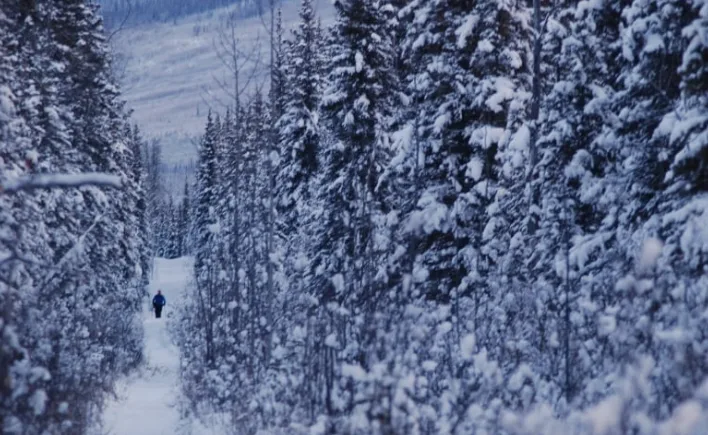
The trail seems endless as the hours drag on. Scott Thomson from Australia said he'd been walking on 3 hours sleep to reach the checkpoint at McCabe Creek. Credit: Philippe Morin/CBC
'THE TRAIL SEEMS LIKE IT'S GOING FOREVER'
Another competitor still in the race is Ahmad Fathi Junaidi, who said he's been sleeping only two to three hours per night.
"I am just so tired. It's been tough. The trail seems like it's going forever," he said.
Like other competitors, he said hallucinations are part of the trek.
"It's taking a toll, especially at the end now. You'll be seeing all these snow creatures around. You see different things. You snap out of it after a while or you just go to sleep," he said.
Despite the fatigue Junaidi is still in the race and pressing forward. He is the first competitor to represent his country of Brunei.
"Everyone is supporting me back home. Everyone is following my progress, I need to show them I can get this done," he said before continuing down the trail toward McCabe Creek.
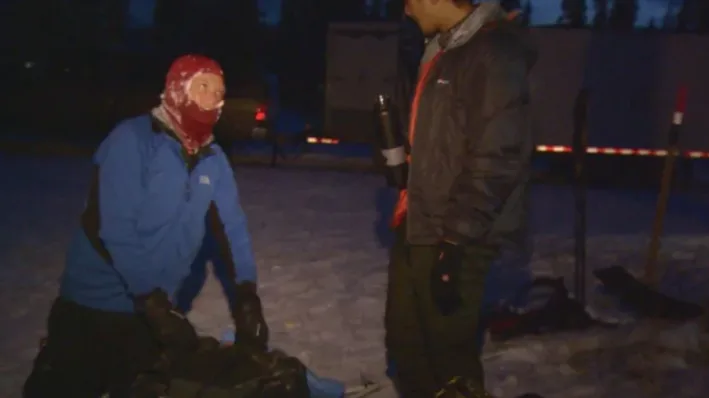
Made it! A grateful Scott Thomson from Australia arrives at the McCabe Creek checkpoint where hot food and a woodstove await. Credit: Philippe Morin/CBC
CHECKPOINTS WITH HOT COFFEE, LASAGNA
Every few days competitors reach an indoor checkpoint. One of those along the trail is a farmhouse on McCabe Creek, which is accessible from the Klondike Highway.
On Feb. 8, the farm's workshop and garage had been converted to a warming shelter for racers.
Some slept soundly in their bags near the woodstove while others ate lasagna, bread with peanut butter and had coffee while trading stories.
German competitor Magdalena Paschke was drying out gear and described what many racers fear: getting wet while alone in the cold.
Her story ends well, as good planning paid off.
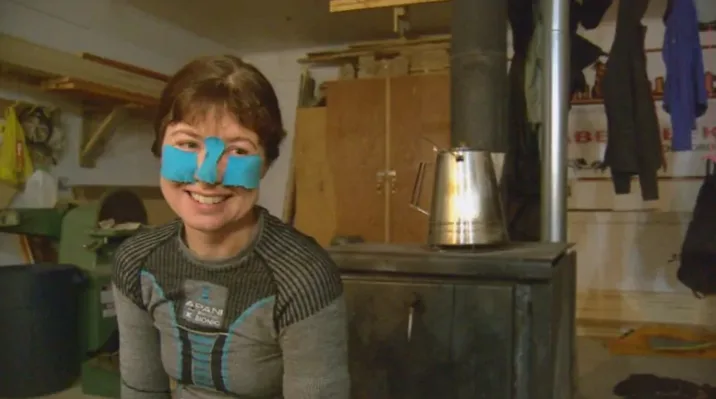
Magdalena Paschke warms up by the woodstove at McCabe Creek. A spare pair of boots kept her feet dry this year after she fell in overflow. Credit: Philippe Morin/CBC
"Two days ago I stepped out and fell into some overflow," said Paschke. "I had second boots in my pulk and I'm so glad I made this decision. In Whitehorse I was thinking whether I would have them or not. I decided 'yes' and well that's why I'm still in the race," she said with a big smile pushing up the blue frost tape across her cheeks.
The race ends on Feb.16, whether all the racers have arrived in Dawson City or not.
This story was originally published by CBC News and written by Philippe Morin.





